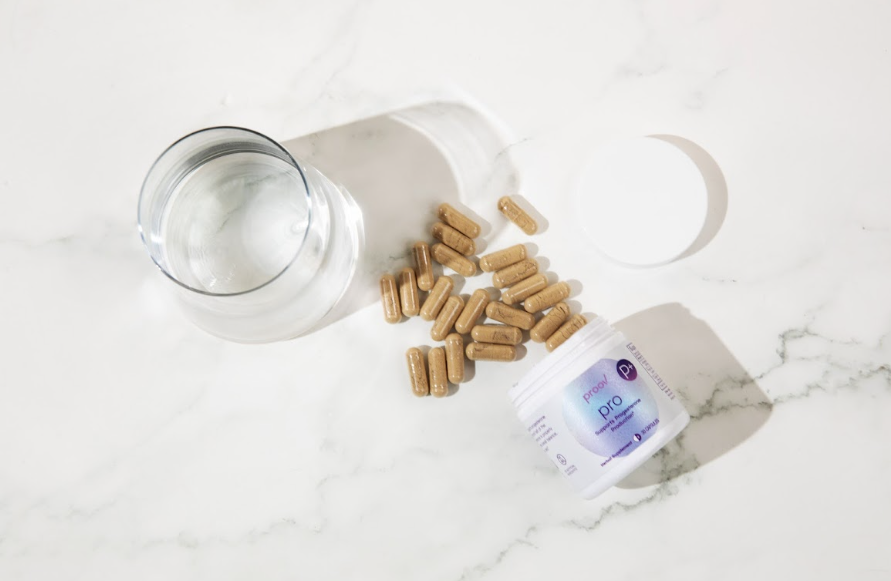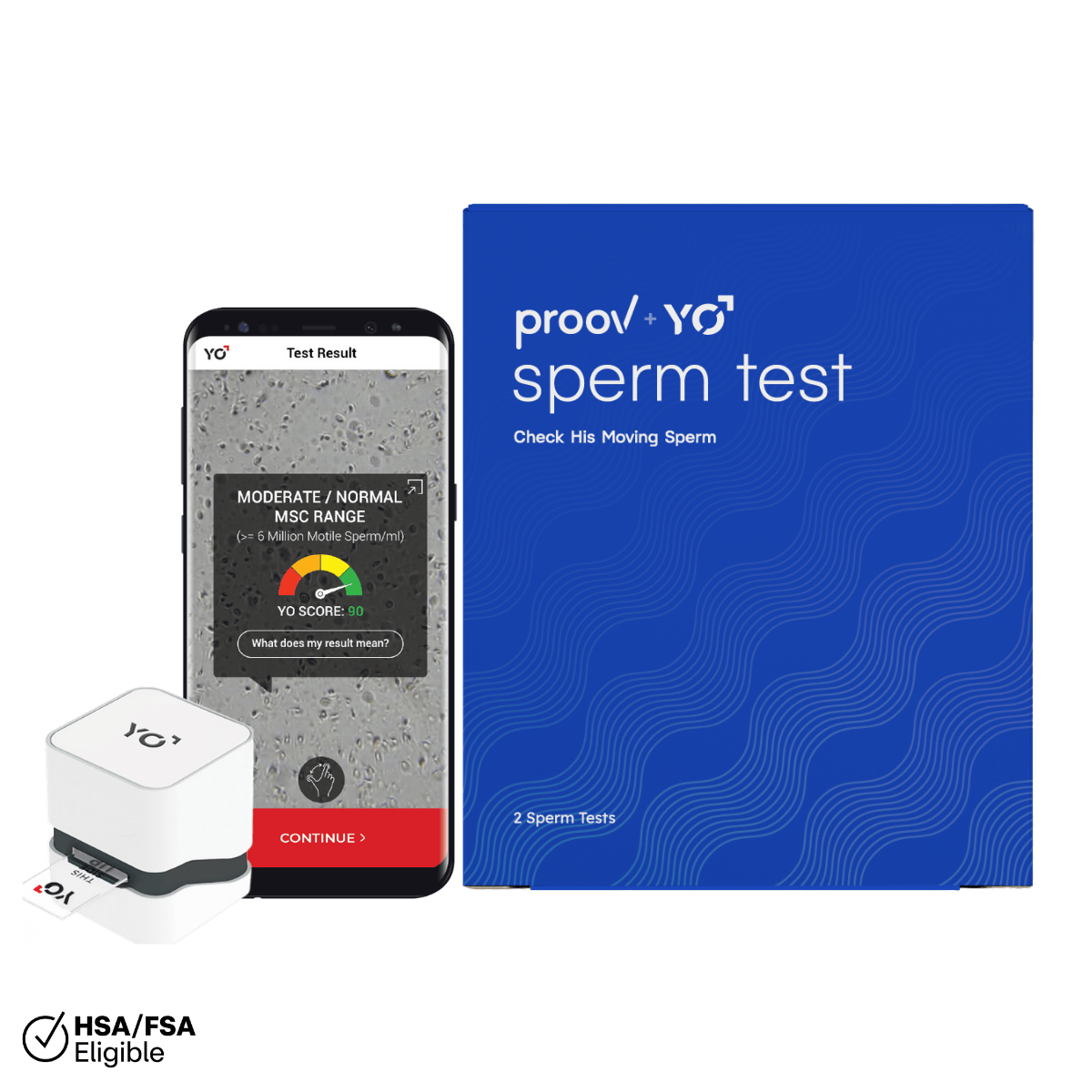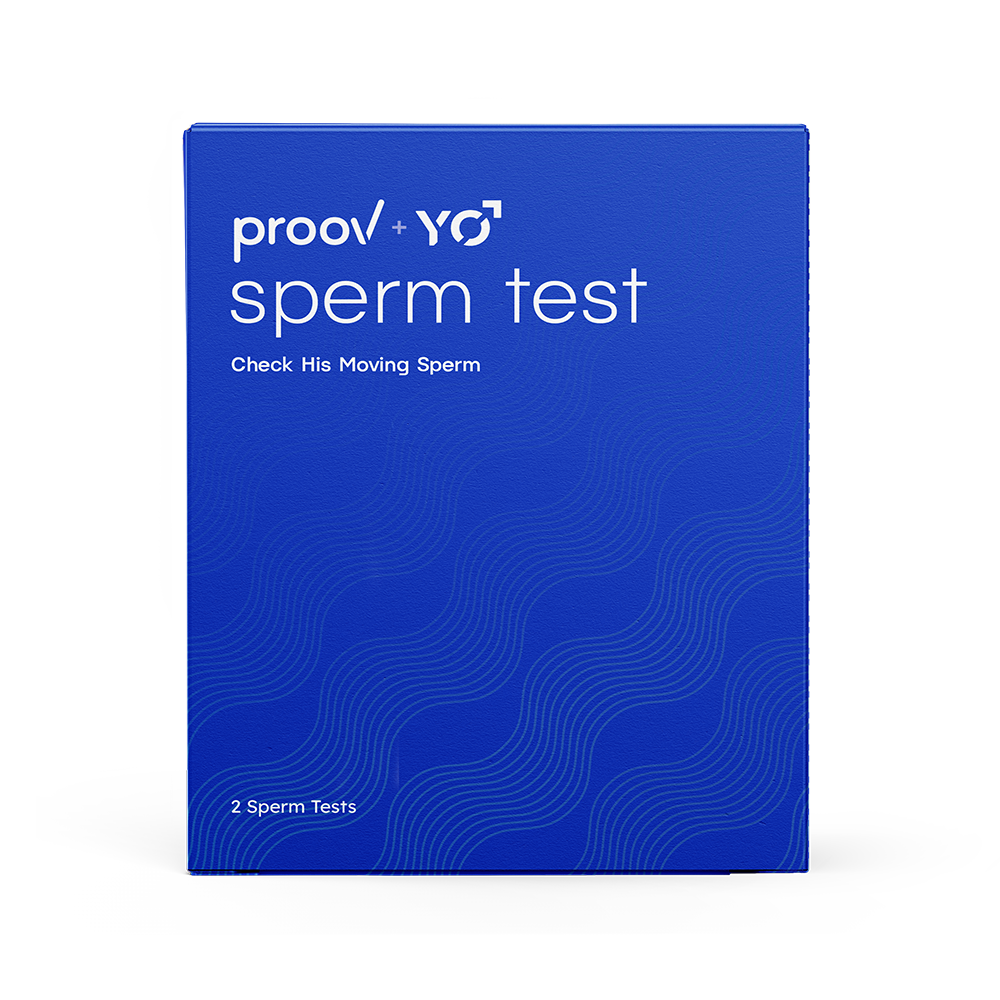By: Dr. Amy Beckley, PhD, Founder and Inventor of the Proov test
Updated on 3/6/2025
Living and feeling your best means having a healthy hormone balance! Low progesterone is a common hormonal imbalance many people with uteruses experience, especially when trying to conceive.
The good news? There are many natural ways to help maintain normal progesterone levels, including through herbs that boost progesterone. We're especially excited to introduce our own herbal supplement (more on that later!) — but first, let’s dive into what progesterone does and how these herbs can help.
What is progesterone and why is it important?
Progesterone is one of the two main female sex hormones and, along with estrogen, plays important roles in reproductive and cycle health.
After ovulation, progesterone levels rise and should remain elevated throughout the mid-luteal phase — also known as the "implantation window."
Progesterone prepares the uterus for implantation by helping the uterine lining become thick and receptive. Without sufficient progesterone during this time, it can be more difficult for an embryo to implant successfully.

Once implantation occurs, progesterone creates a healthy uterine environment in which the embryo can grow and thrive.
But progesterone isn’t just about fertility — it supports other essential functions like:
PMS Relief
Low progesterone can worsen PMS symptoms, and better levels have been linked to improved mood and fewer cramps.
Mood
Progesterone has a calming effect on the brain. Too little can lead to anxiety or mood swings.
Sleep
This hormone promotes restful sleep and has mild sedative properties.
Skin
That famous “pregnancy glow”? It's due to high progesterone. Low levels can cause dry, dull skin — especially as we age or approach menopause.
How do I know if I have low progesterone?
In a healthy cycle, progesterone levels rise after ovulation and stay elevated for several days. But how do you know if that’s happening?
Traditional blood tests only offer a single snapshot in time — which isn't always reliable since progesterone can fluctuate hour by hour. Ideally, you’d monitor levels across several days to confirm they remain elevated throughout the entire implantation window.

Proov Confirm is the first and only FDA cleared PdG test to check for successful ovulation.
That's why we created Proov Confirm — the first and only FDA-cleared PdG test that measures pregnanediol glucuronide, a urine marker of progesterone. Testing PdG over multiple days (days 7–10 after peak fertility) gives a fuller picture of your hormone health.
-
3–4 positive PdG tests, including one on day 10 past peak, confirms successful ovulation and sufficient progesterone.
-
Fewer than 3 positives, or a negative on day 10, may suggest your body needs support to raise progesterone levels.
Which herbal supplements to increase progesterone can help?
If your PdG results indicate low progesterone, your doctor may recommend lifestyle changes or supplements. Natural herbs to raise progesterone are a gentle, effective option. Here are three science-backed herbal supplements to consider:
Vitex (chaste berry)
Vitex is one of the most studied herbal supplements to increase progesterone. It works by supporting your body’s natural LH (luteinizing hormone) signal, which tells your ovaries to produce progesterone after ovulation.
-
Helps balance estrogen and progesterone
-
Supports ovulation and luteal phase health
-
Should only be taken during the second half of the cycle (last 15 days)
Maca
Maca is a Peruvian adaptogen known for boosting libido, improving energy, and supporting hormone balance. It helps regulate the body’s stress response and also encourages the LH signal that promotes progesterone production.
-
Adaptogenic effect for personalized hormone support
-
Promotes fertility and reproductive health in both men and women
Ashwagandha
Ashwagandha is another adaptogen that promotes healthy cortisol levels. Since high cortisol can inhibit progesterone production, maintaining balanced stress hormones is key.
-
Reduces cortisol, which supports natural progesterone production
-
Promotes calm and reduces anxiety linked to hormone imbalance
Can I take all three herbal supplements at once?
Yes! In fact, combining these herbs can be even more effective. That’s why we created Proov Pro Implantation Support — a convenient herbal blend featuring vitex, maca, and ashwagandha to naturally support progesterone production.
-
Take 1–2 capsules daily during the second half of your cycle (the luteal phase)
-
Consult your healthcare provider before starting any new supplement
-
Not for use during pregnancy or with certain fertility medications
If you're trying to conceive or simply looking to feel more balanced, herbs that boost progesterone can be a powerful part of your hormone health routine. Combined with Proov Confirm, they help you track and support your cycle naturally — no guesswork, just data.
Note: Proov Pro Implantation Support is not to be used during pregnancy. If you are on fertility medications, please talk to your doctor before using.













